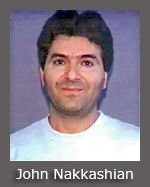 Yesterday, the United States Court of Appeals for the Seventh Circuit reversed* a federal district court conviction of Doli Syarief Pulungan for attempted unlicensed exports of rifles copes to Indonesia in violation of the Arms Export Control Act. I previously reported on Mr. Pulungan’s case here and here.
Yesterday, the United States Court of Appeals for the Seventh Circuit reversed* a federal district court conviction of Doli Syarief Pulungan for attempted unlicensed exports of rifles copes to Indonesia in violation of the Arms Export Control Act. I previously reported on Mr. Pulungan’s case here and here.
The decision can only be characterized as a complete smack-down of the theory, advanced in most recent prosecutions by the DOJ and the Directorate of Defense Trade Controls (“DDTC”), the State Department’s export licensing agency, that decisions that a particular defense item falls within a particularl USML category are unreviewable under section 2778(h) of the Arms Export Control Act. The Seventh Circuit’s decision also provides an interesting elucidation of how the “willfulness” requirement for an AECA prosecution and conviction should be construed.
In the Pulungan case, in order to prove that the Leupold Mark 4 CQ/T rifle scope was listed on the United States Munitions List (“USML”), the prosecution introduced the testimony of Anthony Dearth, a Division Chief at DDTC. According to the appeals court, Mr. Dearth:
testified that the Directorate of Defense Trade Controls has concluded that the Leupold Mark 4 CQ/T is “manufactured to military specifications” but he would not say what those specifications are or why the Directorate believes that the Mark 4 CQ/T is “manufactured to” them. The decision itself was not produced.
The prosecution then claimed that this determination was not reviewable under section 2778(h) and asked for, and received from the district court, a jury instruction, stating that the rifle scope was, as a matter of law, a USML item and taking that question out of the jury’s hands.
The court disagreed, adopting the interpretation of section 2778(h) that this blog has advanced — namely that the decision of DDTC to put a category of items on the USML is non-reviewable but that the decision as to whether a particular item falls within a USML category is not shielded from judicial review:
Section 2778(h) provides: “The designation by the President (or by an official to whom the President’s functions . . . have been duly delegated), in regulations issued under this section, of items as defense articles or defense services for purposes of this section shall not be subject to judicial review.” (Emphasis added.) So if 22 C.F.R. §121.1 Category 1(f) read “any Leupold Mark 4 CQ/T riflescope”, that designation would be incontestable (even though made by the Directorate rather than the President), and the question for the jury would be whether the item that Pulungan tried to export was indeed a Leupold Mark 4 CQ/T riflescope.
And now for the smack-down and language which can only be characterized as unusually harsh for an appellate opinion:
A designation by an unnamed official, using unspecified criteria, that is put in a desk drawer, taken out only for use at a criminal trial, and immune from any evaluation by the judiciary, is the sort of tactic usually associated with totalitarian régimes. Government must operate through public laws and regulations.
On the willfulness issue, the Seventh Circuit made clear that because DDTC had not made a public determination that the rifle scope was a USML item, it would be difficult to prove that the defendant here knew that it was a USML item and required a license. The court dismissed all of the evidence that the prosecution had proffered as proof of willfulness and criminal intent.
First, the prosecution introduced evidence that Pulungan had printouts of web pages from sellers of the Leupold rifle scope that stated that the rifle scope could not be exported outside the United States. The Court noted that the web pages didn’t say why the items couldn’t be exported. Territorial restrictions imposed on distributors could be one reason. That the pages said that the items couldn’t be exported even with a license further suggests that these restrictions may have been unrelated to U.S. export laws. And the court noted that other web sites advertised these rifle scopes without any mention of export restrictions.
The prosecution also pointed to Pulungan’s efforts to conceal the actual destination of the rifles by claiming that they were going to Saudi Arabia rather than Indonesia and to an email from Pulungan indicating a belief that exports of defense articles to Indonesia violated a U.S. arms embargo. The concealment of the destination and the emails were based on his mistaken belief that Indonesia was subject to a U.S. arms embargo at the time of the proposed exports. The court held that an intent to break a non-existent arms embargo is not sufficient proof of an intent to break the specific licensing requirements of the AECA.
As always, it is always difficult to parse the exact amount of intent and knowledge that is required to prove a criminal export violation. One the one hand, it seems clear that defendants need not know the name of the law or the section numbers of the provisions violated. On the other hand, it’s not enough for the defendant to have a mistaken belief that his conduct violates the law in a manner different from the charges brought by the government. Where to draw the line between those two extremes is a challenge and the Seventh Circuit’s decision doesn’t provide much guidance in this regard.
The court’s ruling, however, on the scope of section 2778(h) is clear and well-reasoned and is likely to have influence on other courts considering the matter. DOJ and DDTC would be well advised to stop trying to hide classification decisions behind a non-existent and improper shield of non-reviewability.
*Free FindLaw subscription required. I’ll update the link when the slip opinion appears on the Seventh Circuit website.


 Posted by
Posted by  Category:
Category: 


 Several reliable sources have contacted this blog and said that they’ve heard someone over at DDTC saying that “for others” in the definition of “broker” found in
Several reliable sources have contacted this blog and said that they’ve heard someone over at DDTC saying that “for others” in the definition of “broker” found in  Last week the Directorate of Defense Trade Controls (“DDTC”) posted a
Last week the Directorate of Defense Trade Controls (“DDTC”) posted a  Yesterday, the United States Court of Appeals for the Seventh Circuit
Yesterday, the United States Court of Appeals for the Seventh Circuit 


